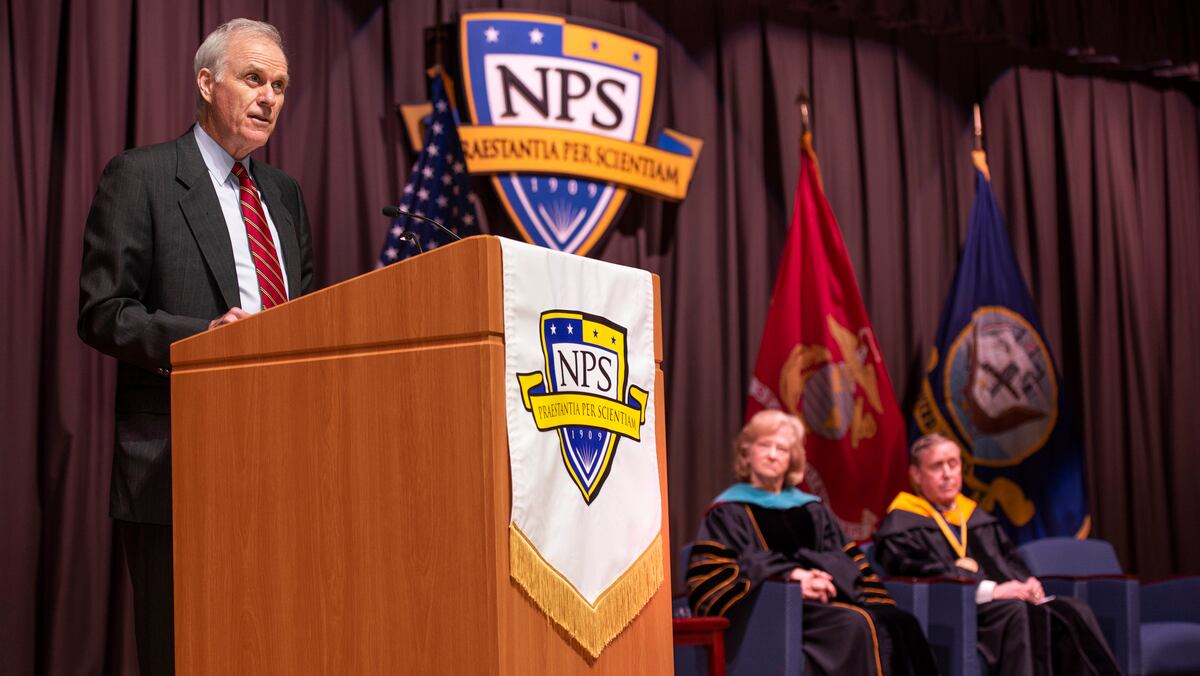The Navy is in the process of selecting the first students to major in information technology, data science and engineering at the Naval Community College, part of a series of reforms designed to change the way the sea service educates its personnel in an era of great power competition.
The new Naval Education for Seapower Strategy was released Monday and Chief Learning Officer John Kroger told Navy Times that the service is considering three groups of enlisted students, totaling between 300 - 600 personnel, for courses that are expected to begin January 2021.
“We’ll have a mixed cohort of students from the Marine Corps cyber and information warfare communities, a group of students from the Navy’s nuclear program — so these are enlisted sailors who operate the nuclear reactors — and a cohort likely to come from the intelligence communities in the Navy and Marine Corps,” Kroger said.
Establishing a free community college to offer accredited associate degrees for all enlisted students is part of a push to streamline how the sea service educates all its personnel, including commissioned officers and civilian employees.
“At the end of the Cold War, the United States possessed a massive economic and technological edge over all potential opponents," the strategy says. “Today, for the first time in decades, we are competing on a much more level playing field and our advantage is declining.”
To help remedy that, the new plan calls for pegging officer promotions to educational attainment, with an eye on potentially bringing similar requirements to enlisted sailors and Marines hoping to advance.
“The strategy currently doesn’t call for any changes in the evaluation or promotion system for the enlisted force. Those changes are really focused on officers,” Kroger said. “Part of that is we recognize it’s not going to be a one size fits all solution on the enlisted side.”
As an example, Kroger said an infantry Marine might not need an associate degree to advance but a sailor in cyber warfare or information technology might need to show continued learning to get ahead.
The overhaul also looks to bridge gaps in war fighting curriculum for junior and mid-grade officers and boost the numbers of commissioned personnel in professional military education programs.
According to the report, 2.9 percent of naval officers in Fiscal Year 2019 attended in-residence programs while 6.7 percent sought out online or executive learning opportunities.
By Fiscal Year 2026, the service wants to increase those to 3.9 percent and 10 percent respectively.
RELATED

Former Navy Secretary Richard V. Spencer declared plans for the community college early last year while unveiling several directives under the Education for Seapower report.
The study, completed by a team formed by Acting Navy Secretary Thomas Modly, was the most comprehensive review of naval education in a century. At the time of the study, Modly was then serving as undersecretary.
Developing the service’s brainpower — what Modly calls “gray matter" — has been a frequent subject for the acting secretary. In his latest “vector," a weekly message to the fleet, he again addressed the importance of learning, which he called "the most essential tool in the organization’s arsenal for sustained competitive advantage.”
“We must similarly understand that in order to deter and, if necessary, outfight our adversaries, we must learn how to out-think them,” Modly wrote.
The new education strategy calls for pulling the community college, the U.S. Naval Academy, Marine Corps University, the U.S. Naval War College and the Naval Postgraduate School under one system. That will help planners identify redundancies and share ideas through faculty exchanges and visiting professorships.
In addition to a curriculum reviews, the strategy also directs Navy education leaders until June to come up with a plan to address aging infrastructure at the Naval Academy, Postgraduate School and War College.
Although the community college will have an administrative base in Quantico, at Marine Corps University, it will focus on delivering classes online to meet the needs of enlisted sailors, according to Kroger.
The service recently completed interviews with candidates hoping the become the college’s first president.
“We had a great applicant pool and so I’m really excited about the candidates we had to choose from,” Kroger told Navy Times. “We’ll be working with the Secretary of the Navy over the next few weeks to make those final decisions and the job offer.”
Courtney Mabeus-Brown is the senior reporter at Air Force Times. She is an award-winning journalist who previously covered the military for Navy Times and The Virginian-Pilot in Norfolk, Va., where she first set foot on an aircraft carrier. Her work has also appeared in The New York Times, The Washington Post, Foreign Policy and more.




